State
Tribe Name
Art Type
short description
Faisal, a poet and author of "Je Pak Madiney Jato," creates a nourishing environment for inner thoughts on spirituality and individual experiences of faith and devotion. Almost like nature, Faisal's poetry flutters above the canvas of religious and cultural heritage, in turn encasing the trauma relating to the act of faith from emotional agonies. Faisal's thoughts create sympathy for mortal souls who, through some act of spirituality, would recover solace and embrace infinite Upper Powers. The themes of longing for the personal and communal spiritual expression gain maximum clarity when expressed in the traditional forms of Gojri Geet.
Thumbnail

Filter Postion
Right
Filter Background
Off
Theme
Filter Header Image

content
Image
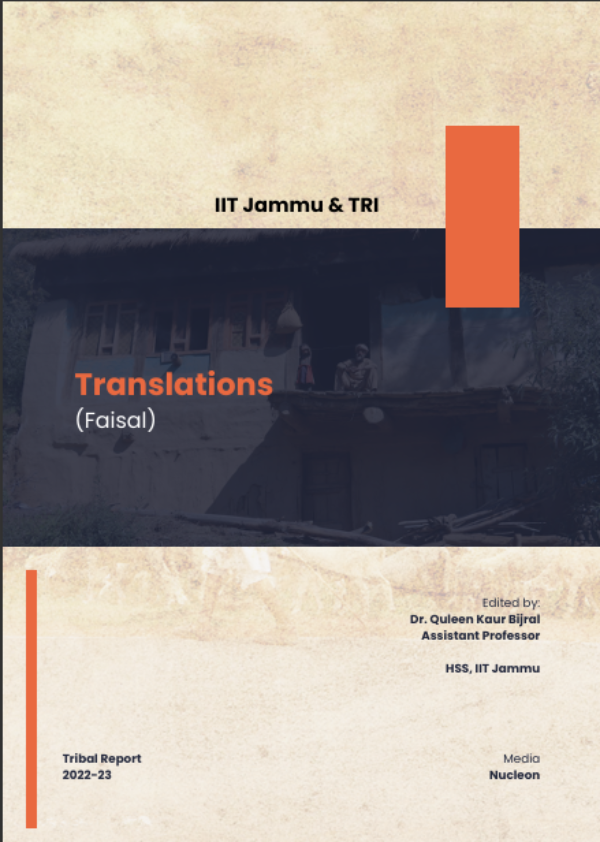
description
Faisal, a poet and author of "Je Pak Madiney Jato," creates a nourishing environment for inner thoughts on spirituality and individual experiences of faith and devotion. Almost like nature, Faisal's poetry flutters above the canvas of religious and cultural heritage, in turn encasing the trauma relating to the act of faith from emotional agonies. Faisal's thoughts create sympathy for mortal souls who, through some act of spirituality, would recover solace and embrace infinite Upper Powers. The themes of longing for the personal and communal spiritual expression gain maximum clarity when expressed in the traditional forms of Gojri Geet.
Image Mode
portrait
Image
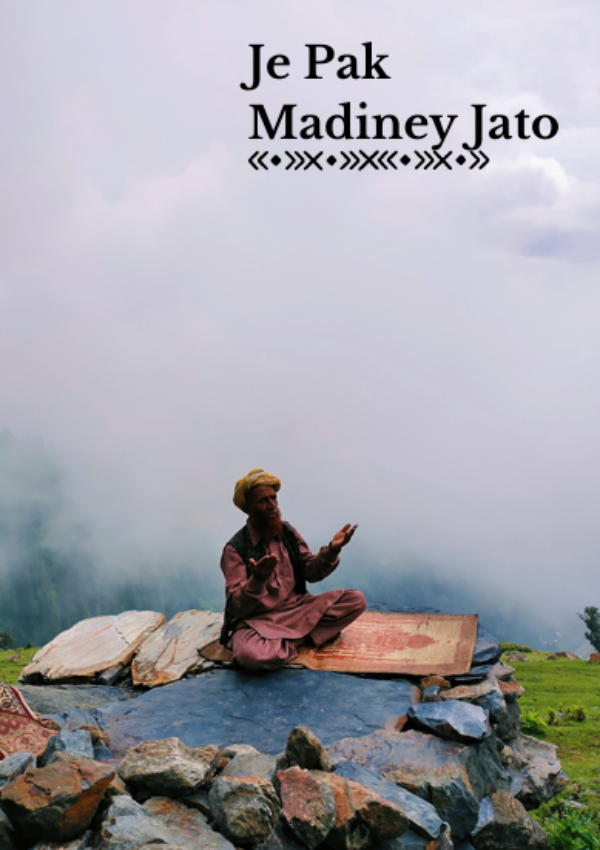
description
It is most perfectly captured in verse with the lines "Je Pak Madiney Jato," a Naat. Each verse draws the speaker's deep desire to visit the holy city of Madina, which thrives on the raw flow of deep emotion and the spirit of longing. The repetitiveness of the lyrics enhances the speaker's strong yearning to express all his sorrows in Madina. This style, attached to the heavenly appeal, perfectly represents the spiritual and supplicatory tone that characterizes devotional poetry.
Image Mode
portrait
Image
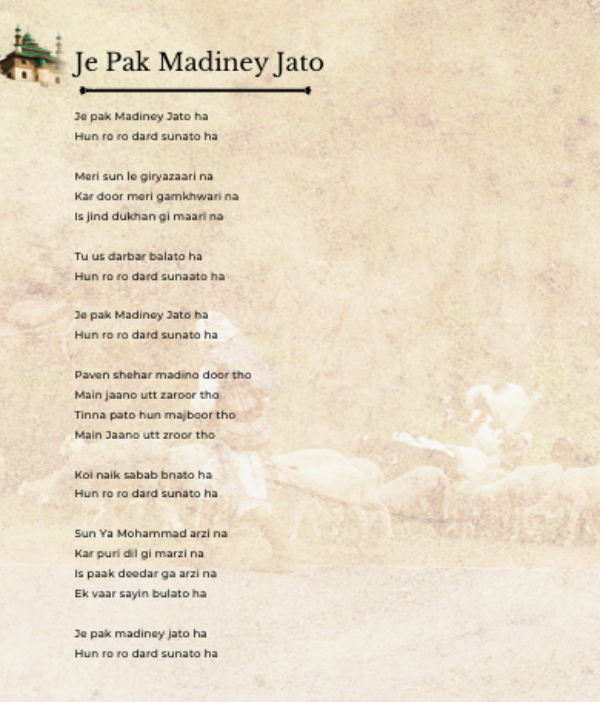
description
The rhyme scheme of “Je Pak Madiney Jato” is fluid, with a repetitive structure that mirrors the rhythm of spoken prayer and plea. While it may not follow a strict pattern, the use of recurring lines like “I would have narrated the agony with tears” adds rhythm and emphasis. This loose rhyme scheme reflects the unstructured and sincere outpouring of emotion, common in Gojri Geet, making the speaker’s plea heartfelt and genuine.
Image Mode
portrait
Image
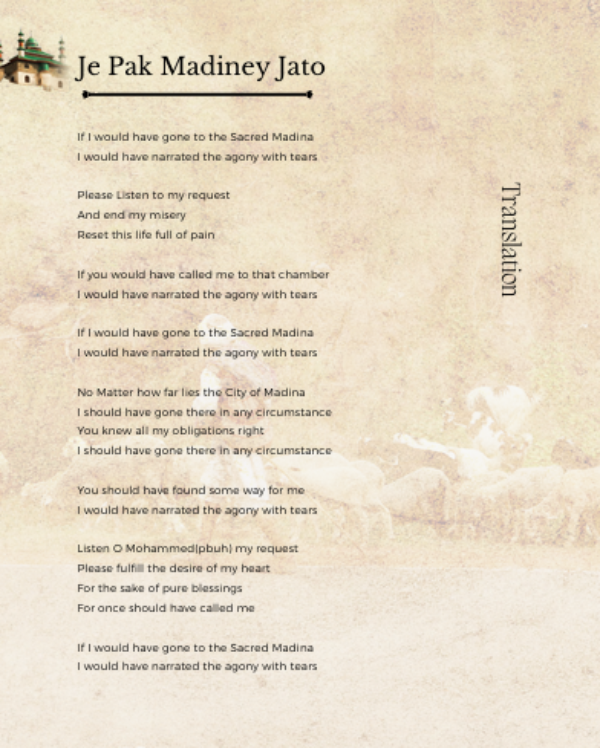
description
The mood of “Je Pak Madiney Jato” is longing and devotion, with themes focused on faith, repentance, and the desire for divine connection. The speaker’s yearning to reach Madina reflects both spiritual devotion and a search for emotional relief. Themes of distance, sacrifice, and unwavering commitment surface as the speaker declares that no obstacle can keep him from fulfilling his wish. The poem’s emotional weight is drawn from its sincere expressions of reverence and longing for a transformative, healing experience in Madina.
Image Mode
landscape
Image
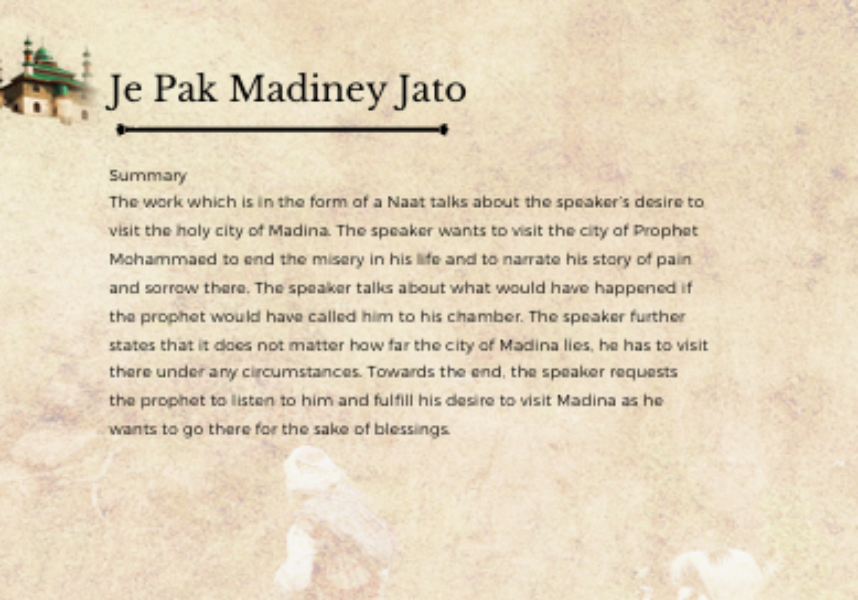
description
The poem centers around the speaker’s unfulfilled wish to visit Madina and the profound emotional relief he believes this journey would bring. The repeated lines about narrating “the agony with tears” emphasize the speaker’s intense sorrow and need for spiritual healing. Faisal uses symbols like distance, blessings, and the chamber of the Prophet to illustrate the depth of the speaker’s commitment to this pilgrimage. The poem’s centricity lies in its portrayal of a powerful longing to reconnect with spirituality and find solace in sacred spaces.
Image Mode
landscape
promoted
Off
Verified
On
